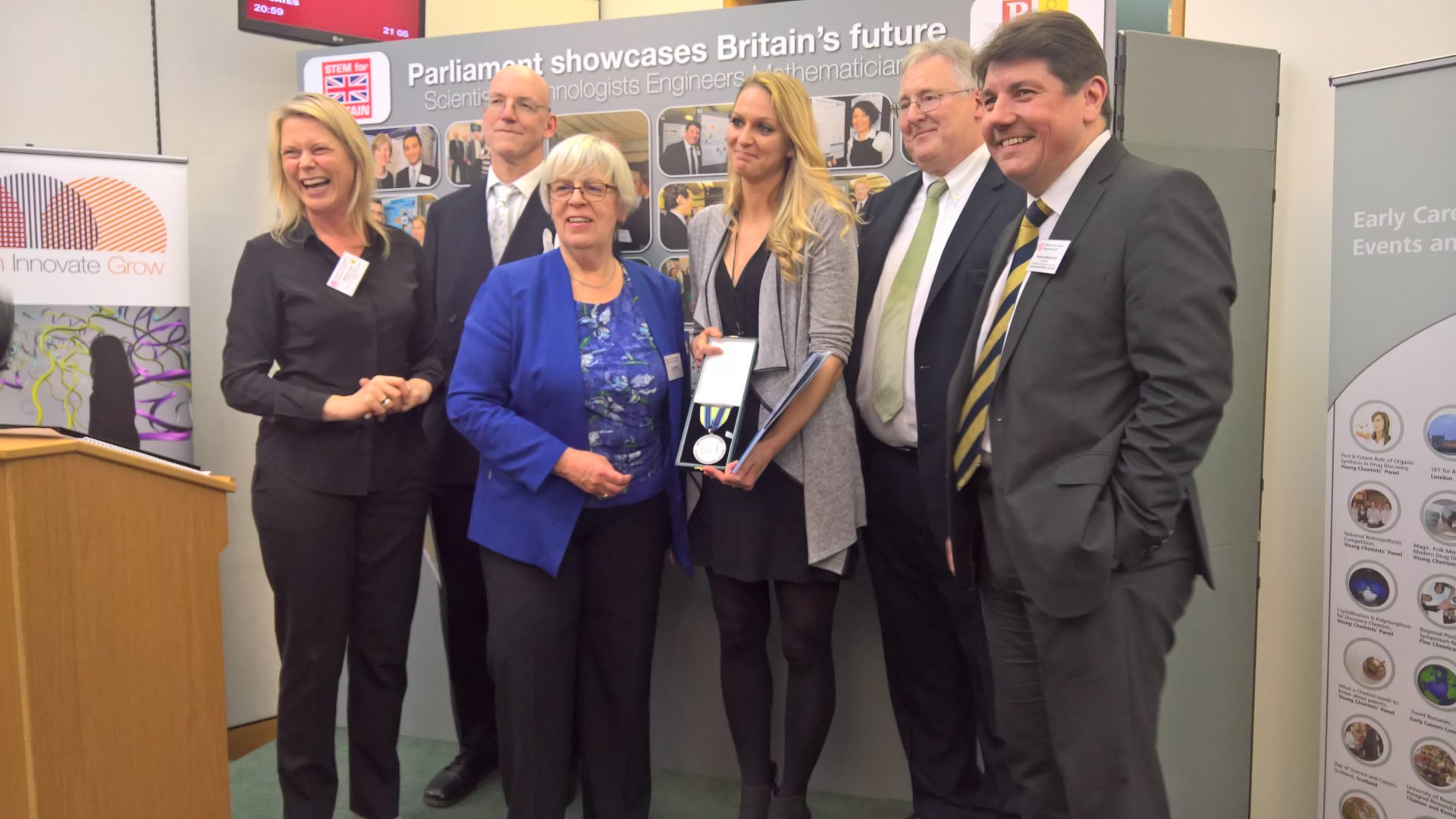News | Tuesday, 14th March 2017
Top prize at Parliament's STEM for BRITAIN event
PhD student named the best early career researcher

A PhD researcher and Postgraduate Teaching Assistant at Manchester Metropolitan University, was awarded the top Westminster prize at the STEM for BRITAIN event at the Houses of Parliament yesterday (13 March).
Lauren McNeill presented her research on developing a device for the rapid and cost-effective detection of the New Psychoactive Substance (NPS) mephedrone, impressing dozens of politicians and a panel of expert judges and walking away with two awards.
‘Ecstatic’ and ‘completely surprised’ to win the main prize, she said: “I wanted to highlight the need for new research into a quick, portable and cost-effective detection method for mephedrone.
“This kind of device could be used for mandatory drug testing in prisons and A&E departments throughout the world by non-specialists. My research is still in the early stages, but intriguing results offer an insight into its potential.”
As Gold Medal winner in the Biological and Biomedical Sciences Section, Lauren was awarded a £3,000 prize. She was then entered to compete for the Westminster Medal – a competition between the five gold medal scientists, engineers or mathematicians at the event based on their ability to communicate their research. Lauren was judged the best, making her the overall winner out of the 212 early career researchers taking part in STEM for BRITAIN 2017.
STEM for BRITAIN aims to raise the profile of Britain's early-stage researchers at Westminster by engaging Members of both Houses of Parliament with current science, engineering and mathematics research being undertaken in the UK.
Dr Marloes Peeters, Jane Wood and Ryan Wimbles from Manchester Metropolitan University also presented research at the STEM for BRITAIN event. Read about their research here.
As well as Lauren's work on psychoactive substances, various academics at Manchester Metropolitan University including social scientists, chemists and economists are researching 'legal highs'. Other research includes the impact of the drug on Manchester's homeless population and the devastating impact these new drugs have had on prisons, prisoners and prison staff.




